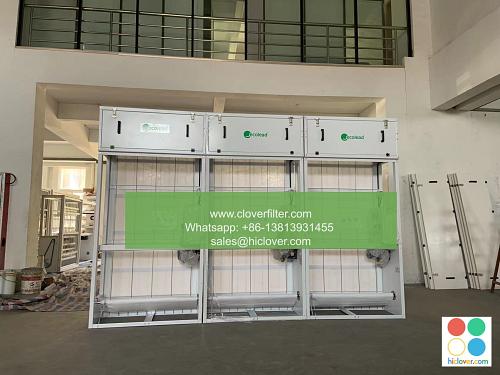Environmental Impact of the Air Filter Manufacturing Process

The air filter manufacturing process has a significant environmental impact due to the energy consumption, raw material usage, and waste generation associated with it. As the demand for air filters continues to grow, driven by increasing concerns about indoor air quality and air pollution, it is essential to examine the sustainability of the manufacturing process and identify areas for improvement.
Raw Material Extraction and Processing
The production of air filters requires various raw materials, including fibers (such as cotton, polyester, and glass), resins, and metals. The extraction and processing of these materials have significant environmental implications, including resource depletion, energy consumption, and pollution. For example, the production of glass fibers requires high-temperature furnaces, which consume large amounts of energy and generate greenhouse gas emissions.
Manufacturing Process
The air filter manufacturing process involves various stages, including cutting, shaping, and assembling the filters. These stages require machinery and equipment that consume energy and generate waste. Additionally, the use of adhesives and coatings in the manufacturing process can release volatile organic compounds (VOCs) and other hazardous chemicals into the air.
Application Areas and Environmental Impact
Air filters are used in various application areas, including heating, ventilation, and air conditioning (HVAC) systems, industrial processes, and automotive systems. The environmental impact of air filters in these application areas is significant, as they can help to improve indoor air quality and reduce air pollution. However, the production and disposal of air filters can also generate waste and pollution. For example, the disposal of used air filters can result in the release of hazardous materials into the environment, including heavy metals and fibers.
Sustainability Initiatives and Future Directions
To reduce the environmental impact of the air filter manufacturing process, several sustainability initiatives can be implemented, including:
* Energy-efficient manufacturing processes
* Use of recycled materials
* Reduction of waste generation
* Implementation of end-of-life recycling programs
* Development of sustainable air filter technologies, such as nanofiber-based air filters and biodegradable air filters
Additionally, the development of circular economy business models can help to reduce waste and promote the sustainable use of resources in the air filter industry. By prioritizing sustainability and environmental responsibility, air filter manufacturers can help to minimize the environmental impact of their products and contribute to a more sustainable future.
Conclusion
The environmental impact of the air filter manufacturing process is a significant concern, driven by energy consumption, raw material usage, and waste generation. However, by implementing sustainability initiatives and developing sustainable air filter technologies, the air filter industry can reduce its environmental footprint and promote a more sustainable future. As the demand for air filters continues to grow, it is essential to prioritize environmental responsibility and sustainability in the manufacturing process, from cutting-edge technologies to end-of-life recycling programs. It seems like you started to give me a prompt, but it got cut off. Could you please complete your thought or provide more context so I can assist you better?

